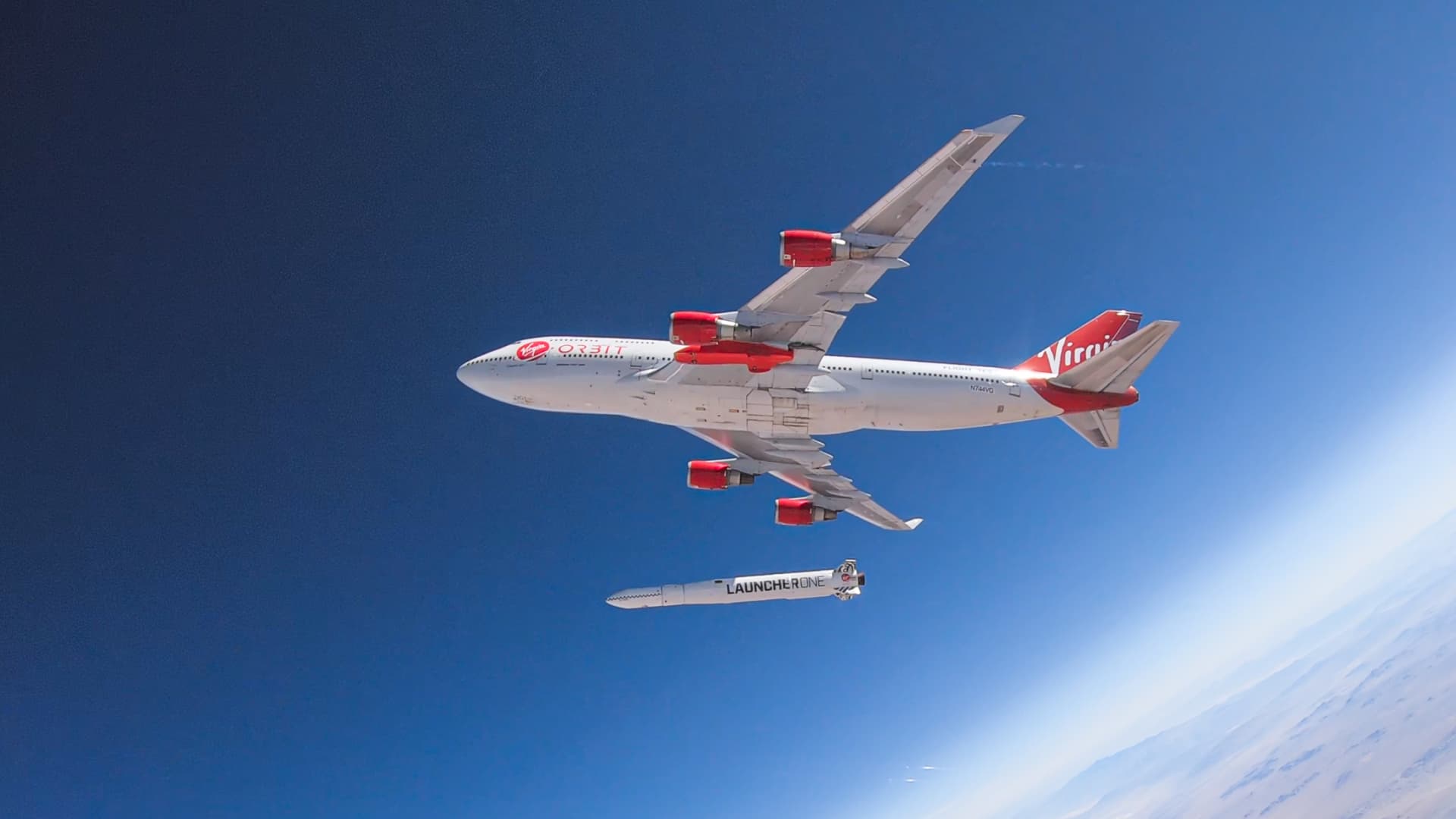
Virgin Orbit started as a program of Richard Branson’s Virgin Galactic in 2012, before being spun off into a separate company five years later.
In the private space race, Virgin Orbit contended its method of launching its rockets — known as “air launch” — was more flexible than traditional launch pads used by competitors like Rocket Lab, Astra and SpaceX.
The company employed a modified Boeing 747 jet that it called “Cosmic Girl” to carry its LauncherOne rocket to about 35,000 feet of altitude before dropping it.
From there, the rocket would fire its engines and fly off into space.
“By launching from an aircraft, Virgin could take off from almost any airport around the world and turn these airports into space ports,” said Caleb Henry, director of research at Quilty Analytics.
Henry noted that the Virgin Orbit’s last launch was from the United Kingdom, and that the company was in discussions to launch in Japan and Brazil.
“They were offering to different countries the ability to, in a sense, have a sovereign launch capability, because the rocket would take off from their home soil,” Henry said.
But Virgin Orbit was dogged by delays. The company originally hoped to launch its debut mission in 2018, but didn’t get off the ground until May of 2020. The demonstration mission failed shortly after the rocket was released. In total, the company launched six missions, four of which were successful and two of which failed, including the last one in January.
Virgin Orbit’s biggest deal was a 39-launch contract signed with satellite maker OneWeb in 2015. OneWeb ultimately pulled out of the deal without conducting a single launch.
“A challenge for the company, and for any launch company, is having an anchor customer, somebody who you can depend on to routinely buy a decent number of launches,” Henry said. “Virgin Orbit did not have an anchor customer.”
In late March, Virgin Orbit said it was laying off the majority of its workforce and ceasing operations “for the foreseeable future” after failing to secure a funding lifeline. Days later, the company filed for bankruptcy.
Watch the video to find out more about what led to Virgin Orbit’s collapse.





